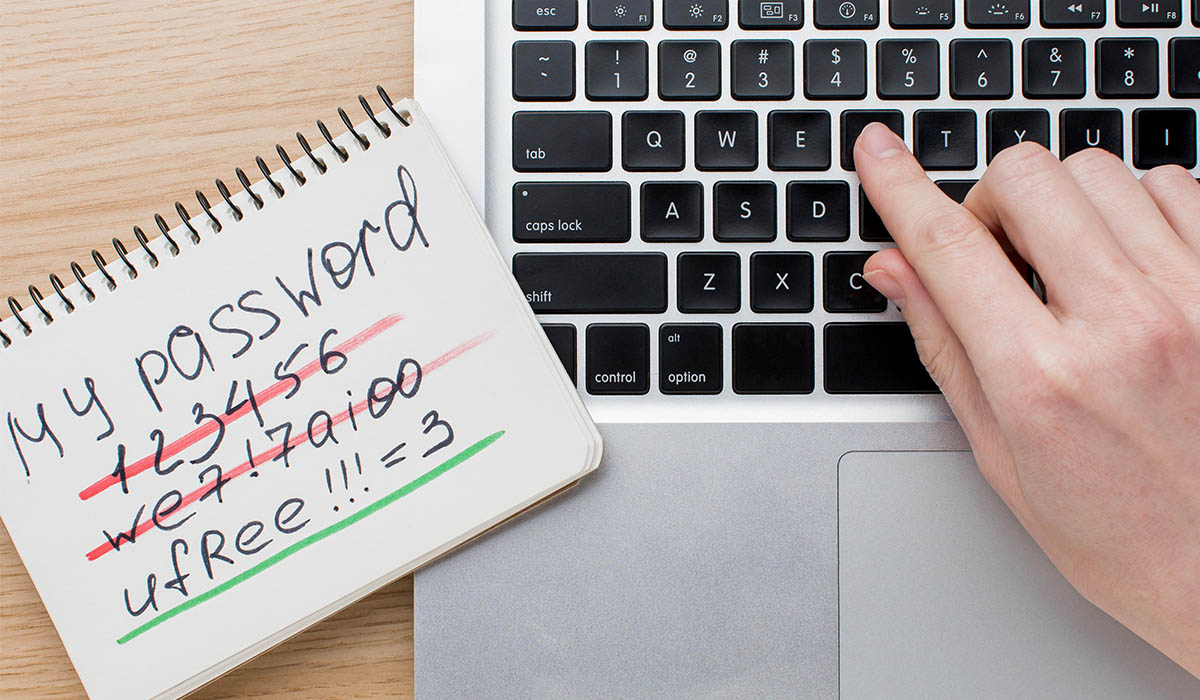
How Do Password Managers Work
We look at how a password actually works so you can see if it would suit you and your needs.
Quick Summary:
Put simply, a password manager allows you to have extremely secure passwords for all your sites and accounts you use without the need to memorize them all.
- Store all your passwords in a secure password vault
- Use one master password and then use all your other passwords with one single click
- Most password managers use both two-factor authentication and AES 256-bit encryption
There are free options when it comes to password managers but we recommending using a paid one with additional features and security, starting from just $7.99 a month. You can also try many of them on a free trial such as the 1Password software which offers a 14 day free trial
Updated:
April 25, 2023

By Max
We all know that creating a password that is secure enough but you’ll actually be able to remember is a task that no one enjoys thinking about nor in practice actually doing. In most cases we all resort to using a password which is easier to remember and likely not as secure as it would be.
This is the case for your personal passwords as well as for business and work related passwords. With the majority of people using passwords which aren’t up to the recommend secure length
For this reason there has been a huge rise in the use of password managers, but what are password managers and how can they help you to both have a more secure password as well as not risk forgetting passwords and having to reset them more often than you should need to.
What is a password manager?
Password manager software allows you to create extremely secure passwords all of which are kept in a password vault, this vault is accessed by one master password and you’ll then be able to login using all your different secure passwords with one simple click.
Not only do these password managers store all of your passwords but they can also secure and store additional information such as credit card details, delivery address, notes, sensitive data and much more.
The software also allows you the ability to share this with people so it’s great when you use one in combination with your family or within your business or team. Allowing you to share access to certain data, passwords or accounts and have the ability to control how much access and what they can do as well as the ability to revoke it if and when you need.

How to create a secure password
You’ll have likely have read a million times that you’ll need to use a long password with a good combination of both uppercase and lowercase letters as well as numbers and symbols. Not only this but you’ll often be told to not use real words and make them 10+ characters in length.
Of course with the above, you’ll end up with something that is not easy to remember and that is where the password management software comes into play. This can help keep the password safe and encrypted whilst allowing you to not have to remember it but still access it.
How safe are password managers?
Of course, safety and security is one of the most important factors for password management software as well as a factor you must consider when using such products.
The big companies and market leading ones such as 1Password devote incredible amounts of money and time into making sure that they are as secure as possible. Different companies will do things slightly differently but in general they all use a similar process to ensure maximum security.
This includes:
- End-to-end encryption means only you have access to your data.
- AES 256-bit encryption
- A secure master account password which is stored separately to other data
- Creation of a secret key that combines with your master password to add more security to your account
- Alerts when any passwords may have been compromised
Password managers can generally broken down into three main types, these are those that are web based/online ones, locally stored ones and stateless (token-based) password managers.
We’ll look into each of these below and show you the benefits and drawbacks of each
Web based/Online password managers
These are the most popular type of password manager and the chances are you’ll end up going for one of these, if you’re searching the web for a password manager then the majority you will come across are like this too.
These store your passwords in the cloud, as with how the cloud works it means you can access you passwords no matter where you are and can be accessed from multiple devices.
You will typically install a web browser or program onto your computer that helps to interact with the cloud that your data and passwords are stored on for easy access.
Are Web based password managers free?
In generally they are not free, there are some that are available but the best password managers cost a small fee each month, this is so they can run it as a business and invest the money into the technology behind it.
It’s a small investment to have peace of mind and security of your data, you can also try many of them out for free such as the 1Password 14 day free trial that you can take advantage of.
The benefits
- You can sync this across all of your devices
- The best features of any password manager
- Fairly priced
The drawbacks
- They are not free
- You’ll need to be connected to the internet to use most of these
- Data is stored in the cloud (but generally very securely)
Locally installed (offline) password managers
These type of password managers store your data on your computer or device itself, they encrypt this password and then allow you to access it quickly when needed.
These are often free but it does mean you will need access to your device itself in order to use the password, you can sometimes share these across to other devices.
Often the choice for those wanting the full security as once this offline password manager has a very secure master password it’s incredibly hard to get inside, added security can be added by making sure that device in question isn’t connected to the internet at any point.
The benefits
- Can be extremely secure if set up correctly
- Often very low cost or free
The drawbacks
- Can’t access passwords when away from the device
- If the device breaks or is lost you lose the password data
Stateless (token-based) password manager
This method is often a free method and one of the most secure, you’ll typically see this a flash drive that has a key on it, that will then unlock a certain account when plugged in. You’ll have most likely heard of this type of security before when it comes to cryptocurrency and keeping accounts secure.
The device doesn’t have a password as per say and so technically may not right calling them password managers as they generate a new key every time they are used to login. (You may have seen something similar with your online banking login if you have a physical device)
As the physical device is needed it means that even if your account is hacked it’s not possible for them to get your password.
The benefits
- Extremely safe
- Device itself is the key and paired with a master password is very secure
The drawbacks
- If you lose this device you can never ever access your account again

Why you should use a password manager?
You may think that the above is overkill and you might not need one, but in reality you can never ever be to secure, you’ll only regret not being secure if the dreaded worst happens and your password or account is compromised.
Hacking of accounts can be sole destroying and cause much upset both emotional and financially, causing businesses to close, bank accounts emptied and more in the worse cases.
Here are the reasons you should use a password manager:
Secure passwords without having to memorize them
One of the main benefits is that you can suddenly have super secure passwords without the issue of having to try and remember them.
With most people having 20+ accounts that they login to on a regular basis if you were to use 20 different secure passwords then you’ll have a hard time remembering all of them no matter how good your memory is. A password manager sorts this issue out.
Multi factor authentication
The best password managers have this so that even if your main password is compromised then you’ll still be secure as a hacker wouldn’t be able to get past the two factor authentication step.
Share your passwords
It may sound a little counterintuitive but there are times when you want to share your password with others and with password managers you can do this safely and securely, instead of a traditional way of actually typing and sending your password to someone which as you can imagine is not a safe way to do it.
Save time
Once all your passwords are in a password vault you’ll not have to type them out in the future and with a single click in most cases you’ll be able to login securely and quickly.
You’ll also be able to auto fill data such as personal information, addresses, credit card details and more into forms in a single step.
Passwords across multiple devices
You’ll be able to access your passwords from your computer, your mobile and other devices if you install the program/product across your devices. This is great as it means you’ll be able to safely and securely login to accounts whether your in the office, at home or on the go.
How easy is it to set up a password manager?
It’s super easy to set up a password manager, most of them have easy step by step instructions and will involve creating your master password, setting up two factor authentication, adding in your passwords and data and installing an app or extension.
Of course you’ll have to understand the setup will takes some time but once this initial setup has been completed, it’s super fast to use and when adding new data or passwords its a case of adding once and then you’re done.
Just imagine entering your name, address and email once in a form and then it auto filled in when you want forever more. The same for credit cards and all the passwords and email logins you have.
Which password managers do you recommend?
There are multiple password management software available but one of our favourites that we use and are one of the market leading is 1Password which you can try out for free.

Our final thoughts
Anything that can help increase your security is a positive and something you should consider. If you’re ever logging into accounts that have sensitive information such as banks, emails, accounts etc then you should be at the very least using a extremely secure password that isn’t used on any other account.
Adding a password manager to your setup can drastically improve your security and give you an additional layer of security that you’ll never reget implementing.
Information we provide is for general information and does not constitute financial advice. Always ensure do your own research when making decisions especially financial ones.
We may earn a small commission from some companies that we are affiliated with, this does not affect our reviews or information provided, this simply helps us run FounderPass and help give you the best information possible.
.png)





